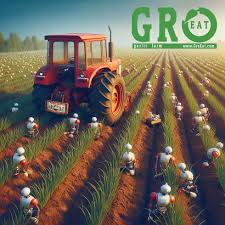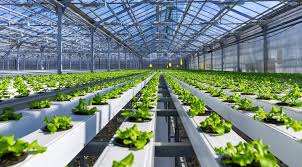
Organic farming automation is revolutionizing how sustainable agriculture operates by integrating advanced technology to streamline processes while adhering to eco-friendly practices. Automation in this context involves using machinery and systems designed to support organic methods, such as automated planting, precision irrigation, and advanced pest management systems. These technologies help optimize resource use, reduce labor costs, and enhance productivity without compromising organic standards. For example, automated irrigation systems can precisely deliver water to crops, minimizing waste and ensuring that plants receive the right amount of hydration. Similarly, robotic weeding machines can remove weeds with minimal soil disruption, reducing the need for manual labor and harmful herbicides. By leveraging automation, organic farmers can improve efficiency and consistency in their operations, making it easier to maintain high standards of soil health and crop quality while contributing to more sustainable and scalable agricultural practices.

One of the most impactful applications of organic farming automation is in precision irrigation systems. These systems use sensors and data analytics to monitor soil moisture levels and weather conditions, allowing for the precise delivery of water to crops only when needed. This not only conserves water, a vital resource, but also helps maintain optimal soil health, which is crucial for organic farming. By avoiding over-irrigation, these automated systems reduce the risk of soil erosion and nutrient runoff, thereby preserving the integrity of the organic farming ecosystem. The integration of automated irrigation in organic farming automation helps farmers achieve higher yields and better quality produce while adhering to sustainable practices.
In addition to irrigation, automated planting technologies play a significant role in organic farming automation. Precision planting equipment can place seeds at optimal depths and spacing, which improves germination rates and crop uniformity. This precision reduces the need for manual labor and minimizes soil disturbance, aligning with organic principles that emphasize soil health and minimal intervention. These automated systems are often equipped with sensors and GPS technology to ensure accurate planting, which can lead to more efficient use of land and resources, ultimately contributing to greater productivity and sustainability.
The integration of automation into organic farming also extends to data management and decision-making. Advanced software platforms and mobile apps provide farmers with real-time insights into various aspects of their operations, such as soil health, crop growth, and market conditions. This data-driven approach enables farmers to make informed decisions about their practices, optimize resource use, and adjust strategies as needed to enhance productivity and sustainability. By leveraging these technologies, organic farmers can better manage their farms and adapt to changing conditions, ensuring the continued success and viability of their operations.
In conclusion, organic farming automation represents a pivotal advancement in the field of sustainable agriculture, combining the principles of organic farming with innovative technologies to enhance efficiency, productivity, and environmental stewardship. By incorporating automated systems for irrigation, planting, pest management, and harvesting, organic farmers can achieve higher yields, better quality produce, and greater sustainability while staying true to the core values of organic agriculture. As the industry continues to evolve, the integration of automation will play a crucial role in shaping the future of organic farming and ensuring its continued success in a rapidly changing world.









